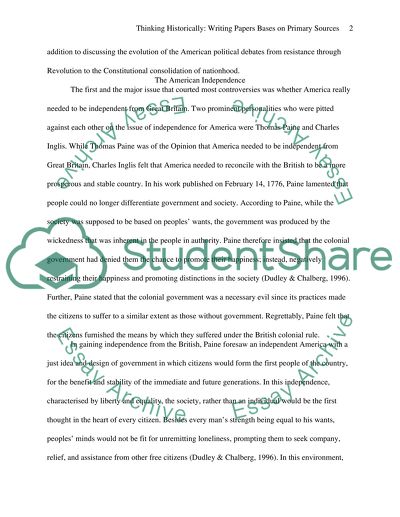Cite this document
(“Thinking Historically: Controversies During And After U.S Independence Essay”, n.d.)
Thinking Historically: Controversies During And After U.S Independence Essay. Retrieved from https://studentshare.org/history/1441656-thinking-historically-controversies-during-and-after-us-independence
Thinking Historically: Controversies During And After U.S Independence Essay. Retrieved from https://studentshare.org/history/1441656-thinking-historically-controversies-during-and-after-us-independence
(Thinking Historically: Controversies During And After U.S Independence Essay)
Thinking Historically: Controversies During And After U.S Independence Essay. https://studentshare.org/history/1441656-thinking-historically-controversies-during-and-after-us-independence.
Thinking Historically: Controversies During And After U.S Independence Essay. https://studentshare.org/history/1441656-thinking-historically-controversies-during-and-after-us-independence.
“Thinking Historically: Controversies During And After U.S Independence Essay”, n.d. https://studentshare.org/history/1441656-thinking-historically-controversies-during-and-after-us-independence.


